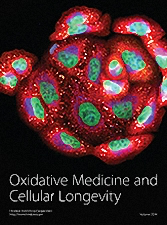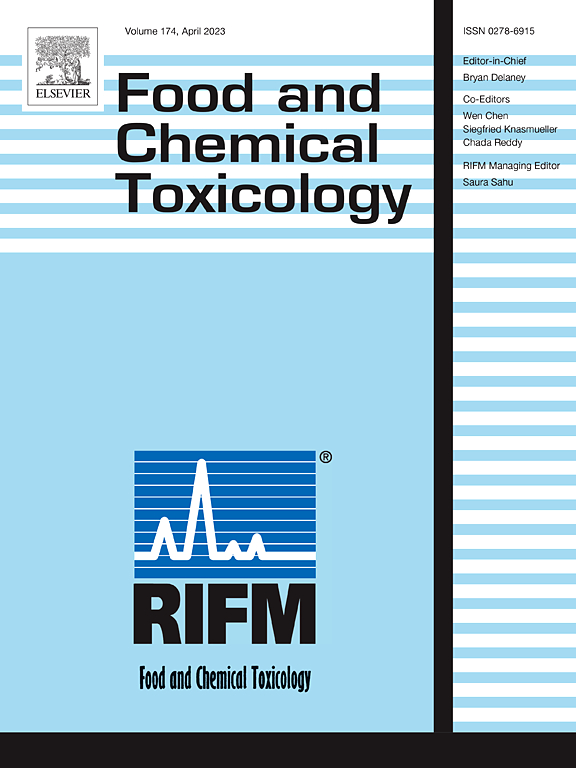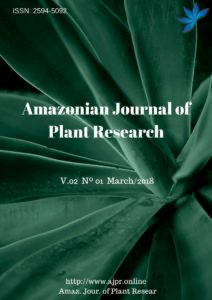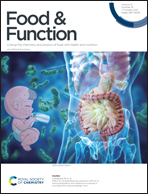Anti-Ageing
How to submit an article:
- Registered users can submit any published journal article that has a unique DOI (Digital Object Identifier) name or link to Research Hub.
- For example, you can paste the full DOI link:
https://doi.org/10.1109/5.771073or just the DOI name:10.1109/5.771073into the field above and click submit. - The person who is first to submit a valid article to Research Hub will forever be credited for it, and every article submission earns you +6 Research Points.
Published research studies are articles that present the findings of original research that has undergone a peer-review process and has been made publicly available in scholarly journals, books or other media.

A review of the botany, ethnopharmacology, phytochemistry, pharmacology, toxicology and quality of Anemarrhena asphodeloides Bunge
2023 Feb Journal of Ethnopharmacology Liu C, Cong Z, Wang S, Zhang X, Song H, Xu T, et al.
Studies have shown that the extracts and compounds from Anemarrhena asphodeloides have extensive pharmacological activities, such as nervous system activity, antitumour, anti-inflammatory, antidiabetic, antiosteoporotic, antiallergic, antiplatelet aggregation, antimicrobial, antiviral, anti-ageing, hair growth promoting, preventing cell damage, etc.
Review Article Zhi Mu
Ginger for Healthy Ageing: A Systematic Review on Current Evidence of Its Antioxidant, Anti-Inflammatory, and Anticancer Properties
2022 May 09 Oxidative Medicine and Cellular Longevity Ozkur M, Benlier N, Takan I, Vasileiou C, Georgakilas AG, Pavlopoulou A, et al.
Systematic Review Antioxidant Ginger Antiviral Anti-AgeingGinger, native to Southeast Asia, possesses antioxidant and antiviral properties, contributing to healthy ageing and potential prevention of age-related disorders.

A proprietary blend of standardized Punica granatum fruit rind and Theobroma cocoa seed extracts mitigates aging males' symptoms: A randomized, double-blind, placebo-controlled study
2022 Jan International Journal of Medical Sciences Pandit SL, Yaligar D, Halemane M, Bhat A
LN18178 supplementation reduced AMS scores and improved sexual performance. Also, LN18178 groups exhibited superior muscular strength and reduction in perceived stress. Total blood chemistry and urine analysis demonstrated the broad-spectrum safety.
Randomised Controlled Trial Anti-Ageing Hand-Grip Strength Cocoa Pomegranate Peel
A Systematic Review of Antiaging Effects of 23 Traditional Chinese Medicines
2021 May 15 Evidence-Based Complementary and Alternative Medicine Wang L, Zuo X, Ouyang Z, Qiao P, Wang F
Systematic Review Anti-AgeingChinese herbal medicines or their components can potentially delay aging by regulating aging-related genes via different signaling pathways.

Impact of cocoa flavanols on human health
2021 May Food and Chemical Toxicology Martin M, Ramos S
Systematic Review Review Article Metabolic Syndrome Anti-Ageing Cardiovascular Disease CocoaCocoa flavanols exhibit health and aging benefits and may act as powerful agents in preventing chronic diseases such as cardiovascular and metabolic disorders, and cancer.
Research insights are moderated by the Research Hub team and offer an at-a-glance overview of interesting research findings.

2022 Oxidative Medicine and Cellular Longevity
Ginger, native to Southeast Asia, possesses antioxidant and antiviral properties, contributing to healthy ageing and potential prevention of age-related disorders.
Systematic Review Antioxidant Antiviral Ginger
Ginger for Healthy Ageing: A Systematic Review on Current Evidence of Its Antioxidant, Anti-Inflammatory, and Anticancer Properties
Ozkur M, Benlier N, Takan I, Vasileiou C, Georgakilas AG, Pavlopoulou A, et al.

2021 Evidence-Based Complementary and Alternative Medicine
Chinese herbal medicines or their components can potentially delay aging by regulating aging-related genes via different signaling pathways.
Systematic Review
A Systematic Review of Antiaging Effects of 23 Traditional Chinese Medicines
Wang L, Zuo X, Ouyang Z, Qiao P, Wang F

2021 Food and Chemical Toxicology
Cocoa flavanols exhibit health and aging benefits and may act as powerful agents in preventing chronic diseases such as cardiovascular and metabolic disorders, and cancer.
Systematic Review Cardiovascular Disease Cocoa Metabolic Syndrome
Impact of cocoa flavanols on human health
Martin M, Ramos S

2020 Amazonian Journal of Plant Research
The most important tremella mushroom benefits are anti-aging, anti-inflammatory, lower cholesterol, combat obesity, protect nerves and may fight cancer.
Systematic Review Anti-Inflammatory Snow Fungus
Chemical compounds and health benefits of Tremella, a valued mushroom as both cuisine and medicine in ancient China and modern era
Mohamad Hesam Shahrajabian, Wenli Sun, Hong Shen and Qi Cheng

2020 Evidence-Based Complementary and Alternative Medicine
The study shows the promising potential of Suan Zao Ren as a multi-effect traditional Chinese medicine derived from the seeds of Ziziphus Jujuba.
Systematic Review Anti-Inflammatory Anticancer Antioxidant Cognitive Function High Blood Pressure
Botanical and Traditional Uses and Phytochemical, Pharmacological, Pharmacokinetic, and Toxicological Characteristics of Ziziphi Spinosae Semen: A Review
Su-Rong He, Chong-Bo Zhao, Jing-Xia Zhang, Jing Wang, Bo Wu, Chun-Jie Wu, et al.
Review Articles
Review articles summarise and critically evaluate the current state of research on a specific topic or field by synthesising multiple primary research studies.

A review of the botany, ethnopharmacology, phytochemistry, pharmacology, toxicology and quality of Anemarrhena asphodeloides Bunge
2023 Feb Journal of Ethnopharmacology Liu C, Cong Z, Wang S, Zhang X, Song H, Xu T, et al.
Studies have shown that the extracts and compounds from Anemarrhena asphodeloides have extensive pharmacological activities, such as nervous system activity, antitumour, anti-inflammatory, antidiabetic, antiosteoporotic, antiallergic, antiplatelet aggregation, antimicrobial, antiviral, anti-ageing, hair growth promoting, preventing cell damage, etc.
Review Article Zhi Mu
Ginger for Healthy Ageing: A Systematic Review on Current Evidence of Its Antioxidant, Anti-Inflammatory, and Anticancer Properties
2022 May 09 Oxidative Medicine and Cellular Longevity Ozkur M, Benlier N, Takan I, Vasileiou C, Georgakilas AG, Pavlopoulou A, et al.
Systematic Review Antioxidant Ginger Antiviral Anti-AgeingGinger, native to Southeast Asia, possesses antioxidant and antiviral properties, contributing to healthy ageing and potential prevention of age-related disorders.

A Systematic Review of Antiaging Effects of 23 Traditional Chinese Medicines
2021 May 15 Evidence-Based Complementary and Alternative Medicine Wang L, Zuo X, Ouyang Z, Qiao P, Wang F
Systematic Review Anti-AgeingChinese herbal medicines or their components can potentially delay aging by regulating aging-related genes via different signaling pathways.

Impact of cocoa flavanols on human health
2021 May Food and Chemical Toxicology Martin M, Ramos S
Systematic Review Review Article Metabolic Syndrome Anti-Ageing Cardiovascular Disease CocoaCocoa flavanols exhibit health and aging benefits and may act as powerful agents in preventing chronic diseases such as cardiovascular and metabolic disorders, and cancer.

Chemical compounds and health benefits of Tremella, a valued mushroom as both cuisine and medicine in ancient China and modern era
2020 Sep Amazonian Journal of Plant Research Mohamad Hesam Shahrajabian, Wenli Sun, Hong Shen and Qi Cheng
Systematic Review Snow Fungus Anti-Inflammatory Anti-AgeingThe most important tremella mushroom benefits are anti-aging, anti-inflammatory, lower cholesterol, combat obesity, protect nerves and may fight cancer.
Clinical Trials
Clinical trials are research studies that involve people and are conducted to evaluate the safety and efficacy of new treatments or interventions, such as drugs, medical devices, or behavioural therapies.

A proprietary blend of standardized Punica granatum fruit rind and Theobroma cocoa seed extracts mitigates aging males' symptoms: A randomized, double-blind, placebo-controlled study
2022 Jan International Journal of Medical Sciences Pandit SL, Yaligar D, Halemane M, Bhat A
LN18178 supplementation reduced AMS scores and improved sexual performance. Also, LN18178 groups exhibited superior muscular strength and reduction in perceived stress. Total blood chemistry and urine analysis demonstrated the broad-spectrum safety.
Randomised Controlled Trial Anti-Ageing Hand-Grip Strength Cocoa Pomegranate Peel
Effect of Montmorency tart cherry juice on cognitive performance in older adults: a randomized controlled trial
2019 Jan Food & Function Chai SC, Jerusik J, Davis K, Wright RS, Zhang Z
Randomised Controlled Trial High Blood Pressure Antioxidant Anti-Inflammatory Anti-Ageing Cherry Cognitive FunctionDaily consumption of tart cherry juice may enhance cognitive abilities in older adults, likely due to reduction of hypertension, inflammation, and oxidative stress.
Study Protocols
Published study protocols are detailed plans that outline the objectives, methodology, statistical analyses, and organisation of a research study that have been made publicly available for others to review and use as a reference.
Presentation Slides

Systematic Review
Ginger, native to Southeast Asia, possesses antioxidant and antiviral properties, contributing to healthy ageing and potential prevention of age-related disorders.
Ozkur M, Benlier N, Takan I, Vasileiou C, Georgakilas AG, Pavlopoulou A, Cetin Z, Saygili EI

Systematic Review
Chinese herbal medicines or their components can potentially delay aging by regulating aging-related genes via different signaling pathways.
Wang L, Zuo X, Ouyang Z, Qiao P, Wang F

Systematic Review
Cocoa flavanols exhibit health and aging benefits and may act as powerful agents in preventing chronic diseases such as cardiovascular and metabolic disorders, and cancer.
Martin M, Ramos S

Systematic Review
The most important tremella mushroom benefits are anti-aging, anti-inflammatory, lower cholesterol, combat obesity, protect nerves and may fight cancer.
Mohamad Hesam Shahrajabian, Wenli Sun, Hong Shen and Qi Cheng

Systematic Review
The study shows the promising potential of Suan Zao Ren as a multi-effect traditional Chinese medicine derived from the seeds of Ziziphus Jujuba.
Su-Rong He, Chong-Bo Zhao, Jing-Xia Zhang, Jing Wang, Bo Wu, Chun-Jie Wu,

Randomised Controlled Trial
Daily consumption of tart cherry juice may enhance cognitive abilities in older adults, likely due to reduction of hypertension, inflammation, and oxidative stress.
Chai SC, Jerusik J, Davis K, Wright RS, Zhang Z
Executive Summary
Write an executive summary in the form of a blog article on the topic of "Research into Chinese medicine treatment for Anti-Ageing" summarising the research below and using language that can be easily understood by patients and avoiding medical jargon using a professional and caring tone of voice.
Write an executive summary in the form of a blog article on the topic of "Researched Chinese medicine treatments for Anti-Ageing" summarising the research below in an objective and easy to understand way, and using language that can be easily understood by patients. Group the article into Chinese medicine treatments first, followed by nutrition and other treatments. Avoid using medical jargon and use a professional and caring tone of voice.
Write me a concise but easy to understand executive summary on the topic of "Chinese medicine treatments for Anti-Ageing" based on the following research that I will give you. Your summary should be 2 paragraphs long in Australian English spelling and include references to the studies.
A Systematic Review published in 2022 in the journal Oxidative Medicine and Cellular Longevity found that Ginger, native to Southeast Asia, possesses antioxidant and antiviral properties, contributing to healthy ageing and potential prevention of age-related disorders. The study explored the natural benefits of ginger, a plant native to Southeast Asia renowned for its culinary and medicinal uses. The approach focused on examining the plant's antioxidant, anti-inflammatory, anticancer, antimicrobial, and particularly antiviral properties from its rich collection of antiviral compounds. The process involved digging into accumulated evidence that suggests ginger's role in promoting healthy ageing, reducing morbidity, and prolonging a healthy lifespan, thus providing a natural solution for an age-old problem. In terms of results, the examination of evidence proved affirming. Ginger displayed significant potential in boosting healthy ageing, reducing the risk of age-related disorders, and extending a wholesome life expectancy due to its inherent properties. The plant's antioxidant characteristics played a key role in these outcomes, along with its anti-inflammatory and antiviral attributes. In essence, the research unfolded a rather underexplored potential of a common natural product in tackling age-induced health conditions.
A Systematic Review published in 2021 in the journal Evidence-Based Complementary and Alternative Medicine found that Chinese herbal medicines or their components can potentially delay aging by regulating aging-related genes via different signaling pathways. The methodology for this paper involved conducting a systematic literature review of studies published in the past five years. The databases used for this purpose included PubMed, EMBASE, Scopus, and Web of Science. Out of a total of 2485 papers initially located, 212 were selectively screened based on the elimination of duplicate entries and their title relevance. The final selection comprised 23 studies suitable for the review. Among these studies, 13 utilized mice as the animal model, while 10 employed alternative animal models or cell lines. The results showed that Chinese herbal medicine and their active components play a significant role in combating aging. This is achieved through the regulation of genes associated with aging via various signaling pathways. This leads to the conclusion that there is significant potential for the development of Chinese herbal medicines as antiaging drugs, or for their utilization within the medical cosmetology industry.
A Systematic Review published in 2021 in the journal Food and Chemical Toxicology found that Cocoa flavanols exhibit health and aging benefits and may act as powerful agents in preventing chronic diseases such as cardiovascular and metabolic disorders, and cancer. This research primarily relies on a comprehensive review of numerous human studies conducted over the past two decades. These studies provided significant data related to the health effects of cocoa intake and its impact on various chronic diseases. The studies encompassed different demographics and health conditions. Though most studies indicate beneficial effects of cocoa on health and prevention of chronic diseases, the results exhibit some inconsistency. Different studies suggest various mechanisms of action for cocoa, but these potential pathways are still not completely understood. Also, crucial issues like recommending cocoa consumption to healthy subjects or patients, determining the appropriate dosage, or the period of intake remain unresolved. Despite these unclarities, the potential of cocoa use to decrease the risk for certain chronic diseases and improve general health and quality of life is emphasized.
A Systematic Review published in 2020 in the journal Amazonian Journal of Plant Research found that The most important tremella mushroom benefits are anti-aging, anti-inflammatory, lower cholesterol, combat obesity, protect nerves and may fight cancer. The most powerful nutritional constituents of Tremella are amino acids, vitamins, minerals, polysaccharides, Glucurmomannan 1,3-alpha-glucan, Epitope 9beta-D- glucuronosyl), Glucuronic acid, Glucurmic acid, Glucuronoxylomannan, N-acetylglucosamine, Flavonoids, Polyphenols, Alkaloids and Organic acids. Functional foods are making inroads into Chinese diets with their promises to improve health and nutrition. Chinese consumers should choose nutritional and healthy food to maintain general health and reduce the risk of health problems. Nutrition therapy on the basis of traditional Chinese medicine such tremella is quite effective at treating common diseases.
A Systematic Review published in 2020 in the journal Evidence-Based Complementary and Alternative Medicine found that The study shows the promising potential of Suan Zao Ren as a multi-effect traditional Chinese medicine derived from the seeds of Ziziphus Jujuba. The methodology of the research was primarily a comprehensive literature review of Ziziphi Spinosae Semen (aka Suan Zao Ren). The team explored the botanical characteristics, traditional uses, pharmacology, and discovered compounds in the seeds of Ziziphus Jujuba. In regards to the results of the review, more than 150 compounds were identified in Ziziphi Spinosae Semen. These compounds, which mainly include terpenoids, flavonoids and others, show various biological activities. It was found that the seeds are particularly prominent in having sedative and hypnotic effects. Other properties discovered include antitumor potential, improvement to learning and memory, anti-inflammatory, antioxidative, anti-aging, alongside lower blood pressure and lipid levels. Traditional usage of the seeds for the treatment of insomnia, forgetfulness, headaches and dizziness were confirmed by the review.
A Randomised Controlled Trial published in 2019 in the journal Food & Function found that Daily consumption of tart cherry juice may enhance cognitive abilities in older adults, likely due to reduction of hypertension, inflammation, and oxidative stress. In this randomized controlled trial, 37 adults aged between 65 and 80 years with normal cognitive function were assigned to consume two cups of Montmorency tart cherry juice daily for a duration of 12 weeks. Participants' subjective memory and objective cognitive performance were evaluated at the starting point and after the 12-week juice supplementation using a validated memory questionnaire and a standard assortment of tests designed for cognitive assessment. Factors such as daily caloric intake and physical activity levels were also monitored during the study. After the 12-week intervention, participants who consumed tart cherry juice showed an improvement in their contentment with memory scores, demonstrated decreased scores of movement time, and performed better on a task of paired associates learning when compared to the control group. Notably, the results revealed that the tart cherry juice group demonstrated improvements on measures of visual sustained attention and spatial working memory relative to their own baseline values. These findings suggest that the potential benefits of tart cherry juice to cognitive abilities might be attributed to the juice's antioxidant and anti-inflammatory properties, and its capacity to reduce blood pressure.
Moderation Tools
Topic
Sign In
Users not signed in are limited to viewing the 5 most recent items of content.
contains superoxide dismutase (SOD) which is a super antioxidant — 20 Aug 2021